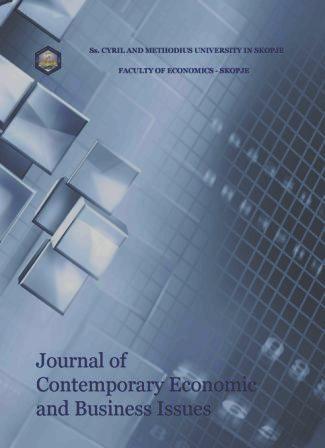The determinants of capital buffer in the macedonian banking sector
Keywords:
capital buffer, banking sector, Johansen cointegration techniqueAbstract
Capital buffer is the excess of capital that banks have above the legally prescribed minimum and has a very important role for preserving the stability of the banking sector, especially in economies where banks are the main source of funding. The capital buffer of banks is very important to maintain their solvency, and to maintain the potential for unconstrained provision of loans in the economy. From this perspective, the question that arises is: which factors determine its movement? The econometric analysis in this paper is made by the use of the Johansen cointegration technique (Vector Error Correction Model - VECM) applied to quarterly time series of the banking sector, covering the period from 2003Q2 to 2013Q3. The findings of this study suggest that the capital buffer of the banking sector in the Republic of Macedonia is determined by the credit risk, market risk and profitability. The recommendations provided in this paper are that prudent measures to maintain the stability of banks in the country be taken.
References
Downloads
Published
Issue
Section
License
Authors retain copyright of the published papers and grant to the publisher the non-exclusive right to publish the article, to be cited as its original publisher in case of reuse, and to distribute it in all forms and media.
Authors are permitted to deposit publisher's version (PDF) of their work in any repository, personal and institutional websites, but full bibliographic information (authors, titles, volume, issue etc.) about the original publication must be provided.

